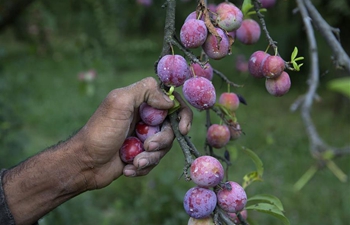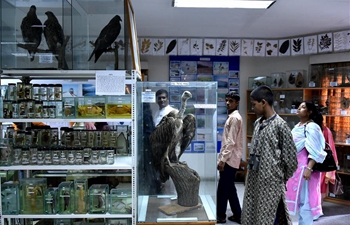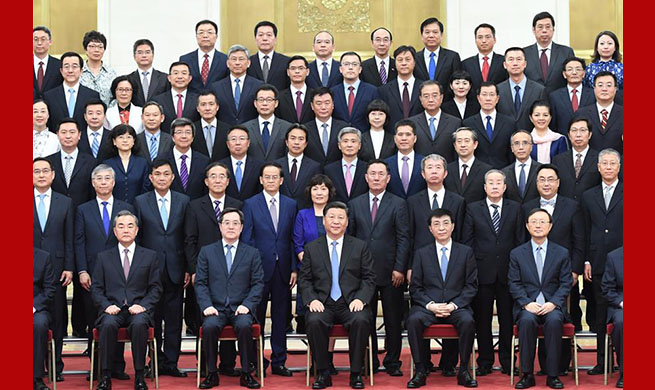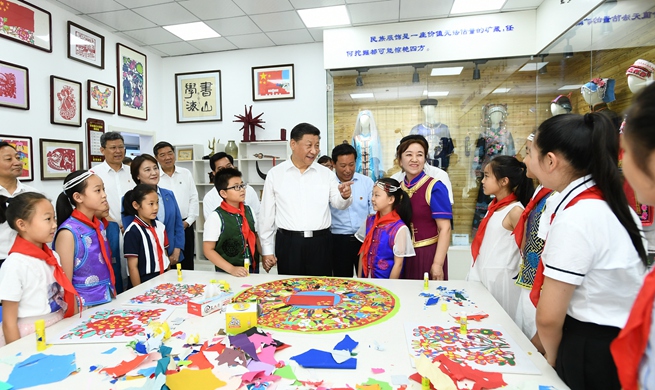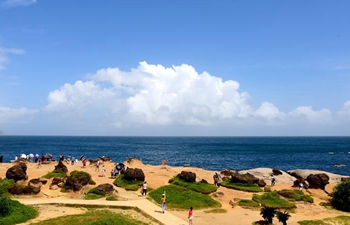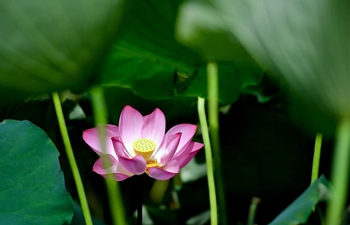KUALA LUMPUR, July 19 (Xinhua) -- On the road leading to the Raub area in Malaysia's central Pahang state, some hill side lands have been cleared for plantation of durians, the thorny "king of fruits" with strong smell and flavor.
Raub is the major plantation area in Malaysia for durians, including its most popular species Musang King. But the planting of durians is picking up steam in recent years not only in Raub but across Malaysia, despite the fact that a durian tree can only bear fruits after a least five years and requires cares like irrigation system and fertilizers.
The confidence could be traced to the expectations that there will be increased demand for the fruits from China as the world's largest market.
In June, China received the first batch of whole frozen durian from Malaysia after the Chinese authorities cleared the fruit for import from Malaysia. Before that, only pulp, paste and processed product could be exported to China.
Tan Kok Wai, Malaysian government's special envoy to China, said the commencement of Malaysian durian to be exported to China market as whole fruits will be very beneficial to Malaysian durian growers as well as to the consumers of China.
"As for my understanding, currently there are less than 1 percent of Chinese who have actually tasted Malaysian durian," said Tan, who proudly labelled his countries' durians as the best compared with those from other countries.
"This shows that the potential market for Malaysian durians in China is so vast. There are endless opportunities for Malaysian durian growers to be benefited from the Chinese market," he told Xinhua on Friday.
Malaysia's Agriculture and Agro-based Industries Minister Salahuddin Ayub said during the inaugural export ceremony in June that Malaysia expects to export 1,000 tons of frozen whole durian, mainly of the premium varieties, to China every month, bringing great economic benefit to the country.
The potential has boosted the industry as the government had embarked on large scale commercial growing of durians, with production going from 211,000 tons in 2017 to 341,000 tons in 2018, he said.
According to the latest statistics from China, bilateral trade between China and Malaysia grew by 10.7 percent to 57.35 billion U.S. dollars in the first six months of 2019. China's export to Malaysia increased by 12.7 percent to 24.35 billion U.S. dollars while China's import from Malaysia rose by 9.3 percent to 33 billion U.S. dollars.
For the period, Malaysia remains China's largest source of import among the 10 members of the Association of Southeast Asian Nations (ASEAN).
"China has been the largest trade partner for Malaysia for the last 10 consecutive years. And it's encouraging to see that for this year too for the first half of the year, the increase in the bilateral trade has been very good and positive," said Tan.
Ong Kian Ming, Malaysia's deputy minister for International Trade and Industry, said his country welcomes China's initiative to increase imports from other countries.
"We will continue to work with China on policies to increase Malaysian exports to China including palm oil, petrochemical products, manufactured goods and agricultural products," said Ong, adding that Malaysia will be participating in the Second China International Import Expo (CIIE) in Shanghai in November.
In a recent durian festival in Raub, Malaysian businessman Khor Kok Chuan said he was very happy that China had allowed whole fruit durian import from Malaysia. The company he worked for has engaged in exporting frozen durians and other durian products to China.
The company will soon open an outlet in the southern Chinese city of Shenzhen, offering durian products to Chinese consumers. "We are confident that the demand from China will continue to grow," he said.

